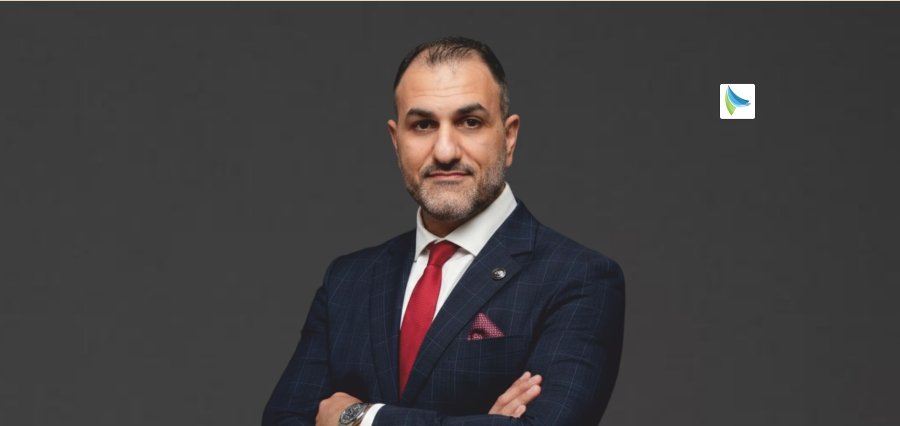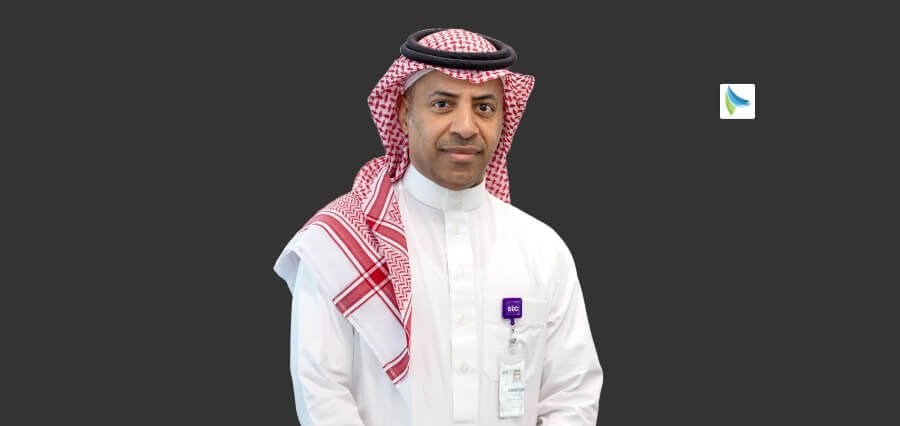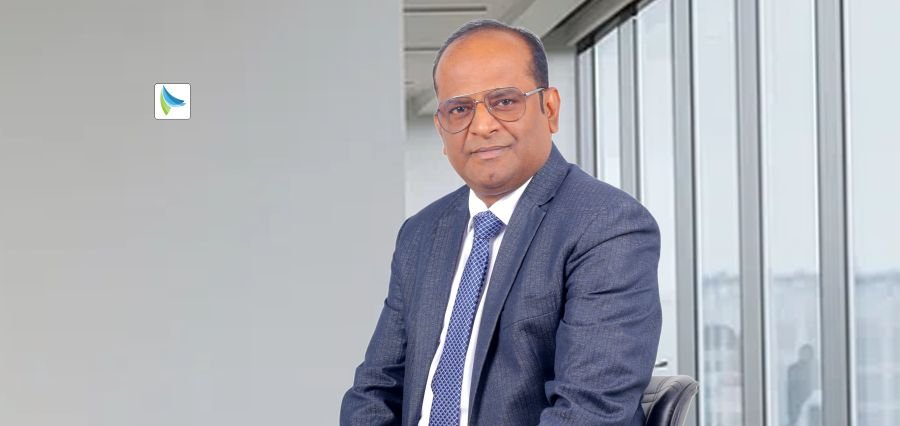Few General Manager have the breadth of expertise that Lt. Col. Ravindra Pratap Singh Bhati possesses in the intricate web of India’s industrial sector, where security issues span from operational risk to cyber threats. He is the Cluster Head of Security and General Manager at Deepak Fertilisers And Petrochemicals Corp. Ltd., making him a new-generation business executive. Few people have accomplished what he has: he has turned exceptional military service into leadership for promoting innovation in business security management.
The Transition: Military Precision to Corporate Adaptation
It was challenging for Bhati to leave the strict discipline of military life and enter the corporate world. He confesses, “I was actually apprehensive about my transition initially,” with his usual candour. “I wanted to know how I would fit in with the corporate civilian population. Would the leadership style I’ve been aiming for in the military work here?”
The majority of those military women and men who are adjusting to working in the civilian world end up failing because of their initial reticence. Additionally, there was the risk of coming across as rigid or controlling when making choices. “I wondered if the civil staff can welcome me in negative way as how can anyone take decision on his own and reach us like a bomb you like it or not,” Bhati speculates.
But what makes Bhati unique is that he spent his entire life seeking knowledge and development. He discovered a vital idea that altered his leadership style by observing how people behave under pressure and how the team responds to different situations. “I understood that the most significant aspect is all about a human being’s honesty and his openness of intentions and expressing the same in fewer words and phrases,” he says.
He had the idea to make this knowledge the cornerstone of his leadership philosophy. Bhati learnt how to transfer his war-tested skills to business culture rather than stifling them. “Since they were my elders, I started giving problem statements rather than giving them solutions,” he says. “This made them think about situational awareness, problem finding, exploring options and decision making.”
Innovation in Security Management: A Multifaceted Approach
Security within the fertilizers and petrochemicals industry is not just about protecting assets; it’s business continuity amidst prevalent threats. Bhati’s innovation in security testifies to a recognition of these nuances.
“Every factory, every office or any other configuration has its own custom way of working, threats, process, and issues,” he repeats. “The Security design will be keeping all of these in mind while implementing the solution in the grid.”
His revolutionary security management process entails a variety of primary areas:
Design-Based Security Solutions
Bhati emphasizes the need for logical and analytical thinking in security design. “Manpower or more technology is most commonly conceived as easy comfortable quick relief but rational and analytical thinking most commonly gives you solutions with less/no cost,” he rationalizes. His security solutions based on design, through physical permanent measures of channeling and funneling, show how strategic thinking can come up with a solution without added expenditure.
Technology Integration
Knowing that security in this day and age means much more than access control, Bhati suggests overall security management with surveillance and allied operations management. “Now security is not only about facilitating access to visitors and RM/FG but also monitoring, allied operation management and effectively deploying security umbrella while incurring less/no additional cost and achieving excellence with new tech & trends.”
Balancing Operations with Security: Strategic Decision-Making as an Art
Balancing operational demands and security and safety issues has been the biggest challenge in Bhati’s role. His method depends on what he terms “informed, disciplined decisions” supported by risk perception, leadership, human connection, resilient design, and sound feedback loops.
“Operations are the fundamental grounds for all of us to exist and put in some efforts,” concedes Bhati. “But, at the same time, Safety & Security also are playing a similarly important role for the business to sustain.”
His philosophy is to provide solutions that meet the operational urgencies at the expense of not sacrificing fundamentals of security. “There are always short-term operational needs to deviate from the basics of safety and security protocols. These priorities need to be kept but not at the risk of safety and security.”
Bhati here offers an insightful security idea: “Even when deviation from SOP is so common, then it’s time to revise the SOP.” This would be a utilitarian approach that offers operational agility with security integrity through continuous process enhancement.
Managing Security as an Enabler to Drive Business Outcomes
The greatest contribution of Bhati is perhaps in bringing security back into the corporate psyche. Traditionally viewed as a cost center, security departments often can’t justify their spend downs in the form of payback on investment.
“Security professionals have been wrestling with this problem for quite some time,” Bhati states. “It is sometimes assumed that the cost is an extravagant choice the Security professional is making.”
His solution to combat this idea is correct consciousness in the sense of security’s broader implication on business activity. “In view of such compliances, Business continuity, goodwill, safe and secure work environment, loss of property cost through vandalism, thefts, unrest etc are not the only parameters which are addressed with monetary penalizations.”
Bhati quotes the intangible but actual value proposition of security: “Negative impact of security incidents, losses and environment plays a very important role in setting up company’s bedrock in the market. A single incident plays an important role in getting the share prices down significantly and a sudden loss is booked.”
Planning for Future Threats: An Overarching Risk Assessment
As companies embrace digitalization and Industry 4.0 technology, Bhati identifies a range of emerging threats for which business leaders must set themselves up for 2025 and beyond. His comments indicate a very highly advanced sense of evolving threat landscapes.
The Convergence Challenge
“The production sector is facing an extremely complicated and dynamic cybersecurity landscape while undergoing digital transformation,” states Bhati. IT-OT system convergence is building an increasingly enlarged attack surface with increasing complexity and vulnerability, he continues.
Advanced Cyber Threats
Bhati’s reporting on cyber threats spans from ransomware assaults on manufacturers to low tolerance among manufacturers for downtime to high-end industrial espionage and intellectual property theft. “Manufacturers are perfect targets for ransomware attacks due to their low tolerance for downtime,” he warns.
Human Element Vulnerabilities
Understanding that security threats cannot be addressed through technology, Bhati invokes the human element. “Employees are not trained in good cybersecurity practices and hence are susceptible to social engineering and phishing,” he comments, emphasizing the necessity for comprehensive training and awareness programs.
Mitigation Strategies
His antidote for these new threats is strategic thinking of a military grade:
- Applying a Zero Trust Architecture model
- Network segmentation and micro-segmentation
- Securing Internet of Things
- Investing in AI-powered threat detection
- Regular security scanning and patching
- Staff cybersecurity awareness training as utmost priority
- Cyber resiliency through incident response planning
- Supply chain security through rigorous vendor screening
Military Heritage: The Secret to Corporate Success
Bhati’s military background provides him with unique strengths in managing corporate security threats. His well-disciplined risk management process, developed under military training, enables him to anticipate threats and proactively take mitigation measures.
“Military experience is a great asset in the confrontation of corporate security threat challenges due to the unique skills and experience gained in dangerous environments,” he details. They encompass strategic thinking, threat analysis, risk management, and effective leadership.
Risk Management and Strategic Planning
His military training focused on systemized approaches to managing risk, i.e., hazard identification, risk assessment, establishment and implementation of control, and ongoing situation evaluation. “This training enables us veterans to expect and identify potential threats and utilize practical mitigation strategies before they become incidents.”
Leadership Under Pressure
“Having military training is actually about making high-stress, high-consequence decisions in the moment with incomplete data,” says Bhati. “That ability for speed can be beneficial for corporate security leaders in response to any kind of security incidents, physical attacks, or operations disruption.”
Operational Expertise
His real-world experience in the implementation of several security protocols in various environments, tied with education on threat assessment, resource allocation, and emergency response deployment qualifies him to deal with corporate crises.
Building Resilient Teams in Multicultural Corporate Environments
One of the significant contributions by Bhati is to develop a culture of discipline, determination, and readiness in different corporate teams. His approach acknowledges the deep differences that exist between the business and army worlds but borrows the best from both the worlds.
“Getting the staff to cooperate with one another, work as disciplined teams and be ready for action was nothing new for me to achieve,” he continues. But he knew he would need to have a customized approach that mixed corporate needs with necessary military values.
His approach involves:
- Promoting cultural awareness and sensitivity
- Offering continuous learning
- Setting open lines of communication
- Being respectful of cultural differences in making decisions
- Providing role and responsibility clarity
- Creating effective team-building activities involving all
- Empowering through autonomy and incentives
- Creating accessible conflict resolution
Core Leadership Principles: The Non-Negotiables
Bhati has kept some of the leadership principles he feels are non-negotiable from his corporate days as a Lt. Colonel.
Integrity as Foundation
“In honesty, integrity, transparency, and moral conduct, the foundation for his credibility and trustworthiness lies,” asserts Bhati emphatically. “In Military, these are building blocks of character. An ideal soldier should always have these habits as cornerstones.”
Accountability and Responsibility
“Accountability is also a merciless creed of military leadership, which means taking responsibility for action and mistake rather than shirking the blame,” he depicts. This concept creates a culture that faces problems head-on and solutions are sought out.
Transparency in Operations
Conceptualizing parallels between defence and corporate worlds, Bhati observes: “Having transparency in Military operations has been very important for its success and mutual trust between troops. In corporate, if the same is absent the trust is also likely to be waning.”
A Proud Achievement: Changing Perceptions
Looking back at his business career, Bhati attributes his greatest achievement as having redefined corporate perception of the place of security in business operations. “I shall be proud of changing corporate people’s perception towards the role of Security in overall business operations,” he writes.
This entailed a shift in the perception of security officers by organizations: from “watchmen” to effective “security officials.” The trend of referring to them as WATCHMEN to SECURITY OFFICIALS is a long one, notes Bhati.
His solution was to inform others that people must be aware of security threats and must strive to create a secure atmosphere. “It should be everybody’s role to contribute in lots of simple ways,” he adds, explaining what has worked is a collective way of addressing security.
Next Generation Leadership
In the future, Bhati values the need for attitude shifts in leadership strategies, particularly when dealing with Generation Z employees. “To be an effective future security general manager, I believe they need to flip the way they are managing or will manage GEN Z,” he suggests.
His own approach to the new generation is also very down-to-earth: “This new generation is as capable and analytical but with a different mindset to challenges common today. Rather than pushing them to learn the old good lessons of hard work and achievement already charted by us, we have to learn their perspective and try to embrace their style too in order to think outside the box and set greater goals.”
This future-oriented approach acknowledges the reality of technological advancements: “With AI performing most of the operations work, the future belongs to technology as we know.”
The Bhati Model: Synthesis of Military Supremacy and Corporate Innovation
Bhati’s path is more than a successful career change; it is an example of how military excellence can be translated into corporate leadership. His approach demonstrates that the so-called contradiction between military exactness and adaptability in business is a chimera.
Bhati is conserving core military values such as honesty, responsibility, strategy, and calculated risk-taking while adapting communication, decision-making, and team working in the context of corporate environments. He has created a leadership framework that utilizes the strengths of both worlds to the maximum.
He is a role model in Deepak Fertilisers And Petrochemicals Corp. Ltd., the best endorsement of the value of ex-military men in the boardroom, security management particularly so in this instance- strategic thinking absolutely paramount, top of all lists being the requirement of risk analysis and crisis management.
A Leader for the Modern Era
In an era where corporate security is faced with more sinister threats than ever before in the guise of cyber attacks, complexity of operations, and shifting employee trends, the likes of Lt. Col. Bhati represent the kind of creative thinking and adaptable leadership that organizations need.
His evolution from military roots to corporate chief is marked by persistent learning, strategic maneuvering, and unshakeable commitment to core principles. These observations are especially worthwhile for future leaders as well as for institutions seeking to strengthen their security brand.
Since the industries continue to expand and face new challenges, Bhati’s leadership style is a recipe for success in today’s business security management phenomena. It blends military discipline with corporate creativity, strategic thinking with operational flexibility, and individual performance with team building.
From his tenure at Deepak Fertilisers And Petrochemicals Corp. Ltd., Bhati continues to show that quality leadership is not about choosing between different styles. It is the ability to boil down the maximum of collective experience and form something greater than the sum of its elements. In doing so, he not only propels his organization’s security strength to the forefront, but he also sets a model of military-to-business leadership transition for others to follow and expand upon.
Read Also: 2025’s Most Inspiring General Manager in Business Innovation















